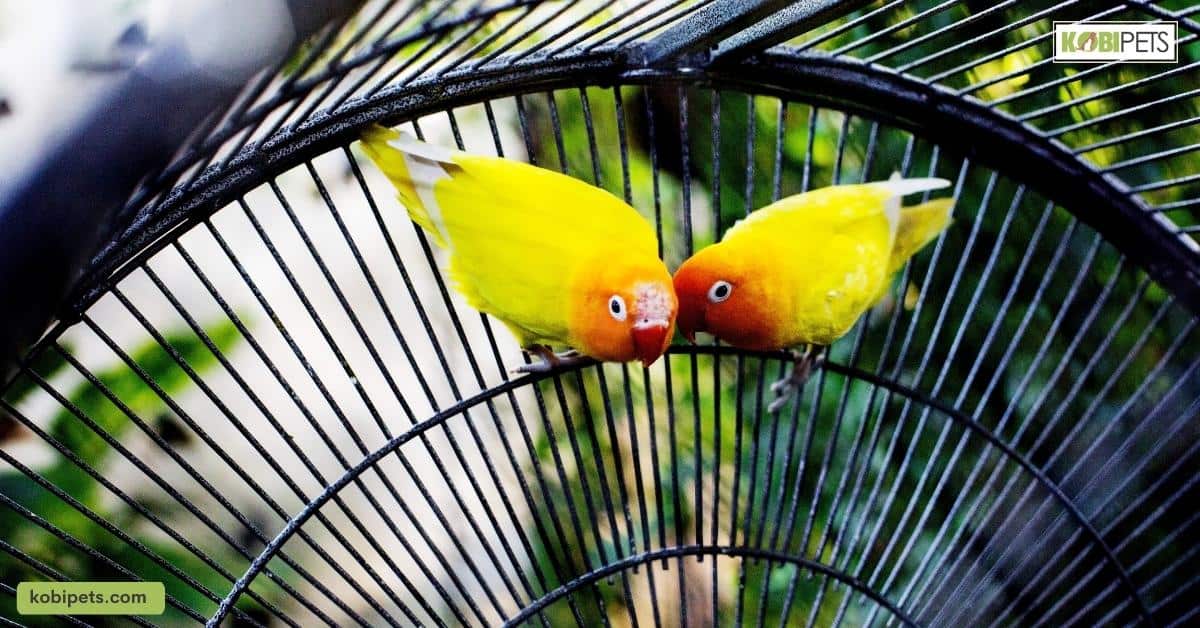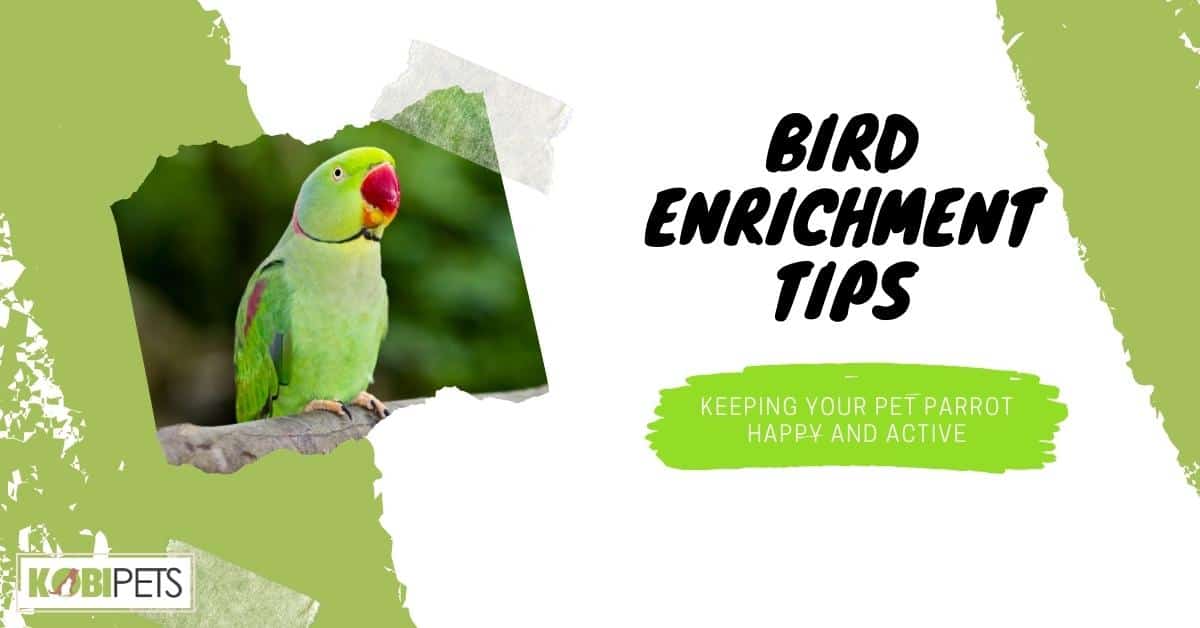
Are you the proud owner of a pet parrot? If so, then you know how important it is to keep your feathered friend active and happy.
For your pet parrot happy and active, provide a variety of toys and perches, and offer opportunities for physical and mental stimulation, such as training sessions and interactive playtime. A balanced diet, a comfortable living environment, and adequate socialization with you and other birds will also contribute to your parrot’s overall well-being.
With the right bird enrichment activities, your parrot can stay busy, enjoy new experiences, and remain mentally stimulated. Read on for some great tips to incorporate into your bird’s daily routine.
1. Offer a Variety of Toys and Perches
Offering your pet parrot a variety of toys and perches can help keep them happy and active. Look for puzzle toys, treat balls, or hanging fruits that challenge their physical, mental, and emotional abilities. Don’t forget to offer different-sized perches made from different materials, like wood and rope.
Make sure to change up their routine to keep them interested by rotating their playthings and offering new enriching activities with each visit to the toy department. Additionally, you can also set up special periods dedicated solely to playing with your parrot.
This will provide additional stimulation necessary to keep them healthy and content.
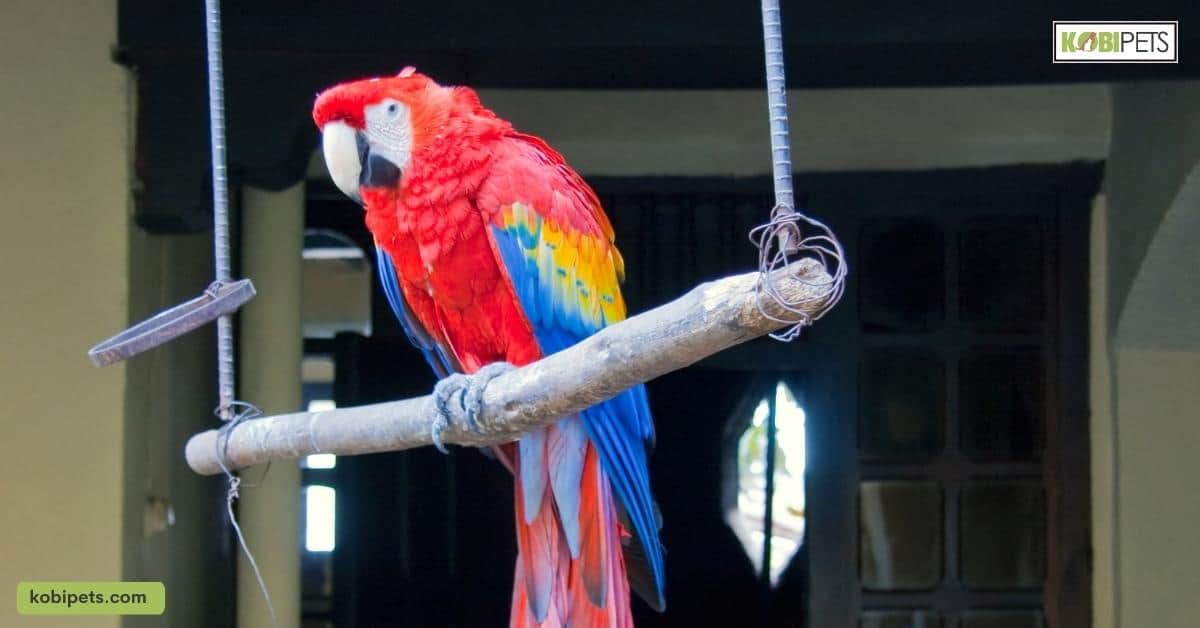
2. Train Your Parrot
Training your pet parrot can be a fun and rewarding experience for both you and your bird. Parrots are intelligent creatures and with patience and consistency, they can learn a wide range of tricks and behaviors. Here are the steps for training your parrot:
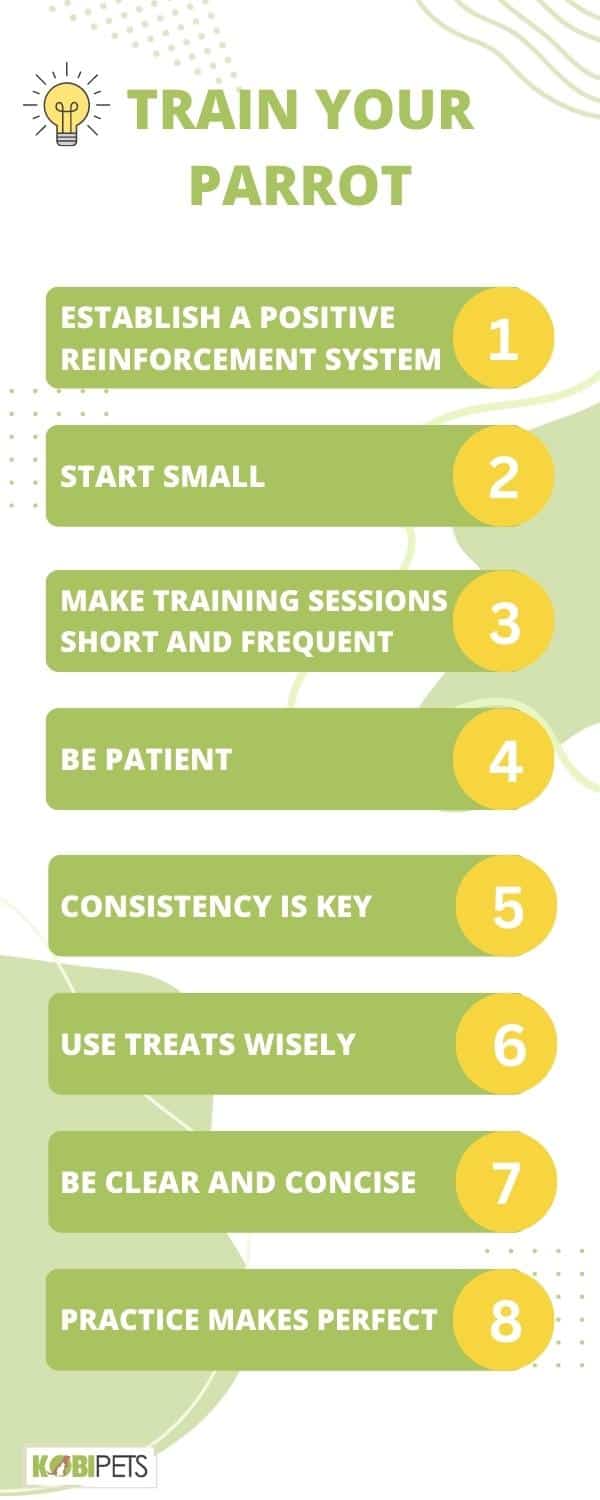
Train Your Parrot
Establish a positive reinforcement system
Reinforce your bird’s good behavior with treats, praise, and affection. This will encourage them to repeat the behavior in the future.
Start small
Begin with simple commands, such as “step up” or “come,” and gradually increase the complexity of the tricks as your bird becomes more confident.
Make training sessions short and frequent
Training sessions should last no longer than 10-15 minutes at a time. Parrots have short attention spans, so it’s important to keep sessions brief and engaging.
Be patient
Training a parrot takes time and patience. Don’t expect quick results, and don’t get discouraged if your bird doesn’t respond immediately.
Consistency is key
Make sure to repeat the training sessions regularly. This will help your bird remember the tricks and build good habits.
Use treats wisely
Treats should be used to reinforce good behavior, not as a bribe. Offer treats randomly and unpredictably to keep your bird interested and motivated.
Be clear and concise
Give commands in a firm, clear voice, and be consistent in the way you give them. This will help your bird understand what you want.
Practice makes perfect
The more you practice with your bird, the better they will become at the tricks. Keep practicing until your bird can perform the trick on command.
3. Provide Interactive Playtime
Providing interactive playtime activities is essential for keeping your pet parrot happy and active. Look for toys that challenge their physical, mental, and emotional capabilities. Puzzles are great for problem-solving and offer mental stimulation.
Or hang pieces of fruit from strings across their cage to encourage natural behaviors such as climbing and reaching out to grab hard-to-reach treats. Hide treats inside wooden blocks or treat balls for a game of hide-and-seek or search-and-find.
And last but not least, don’t forget to provide the right-sized perches with different textures like wood, rope, or soft material to keep them on their feet. There are countless activities available to help keep your parrot entertained
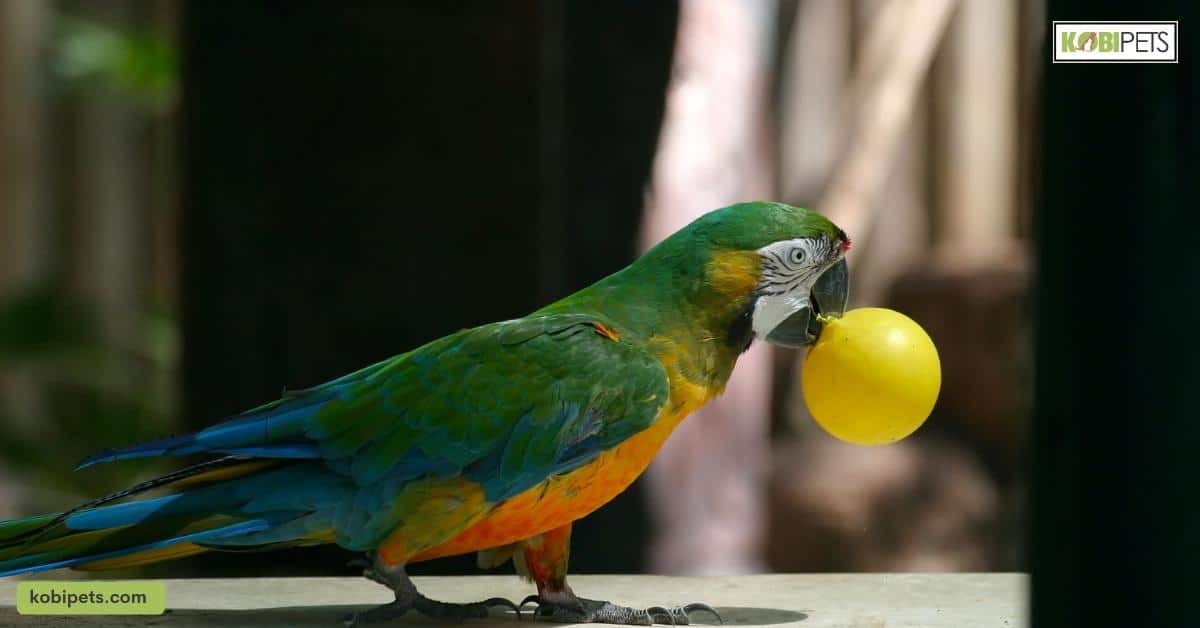
4. Feed a Balanced Diet
Feeding a balanced diet to your pet parrot is essential for its health and happiness. Pet parrots need a wide range of nutritious food for them to stay active and healthy. A balanced diet should consist of:
- Fresh fruits, vegetables, nuts, seeds, and other nutrient-rich foods
- Fruits can include apples, bananas, oranges, pears
- Vegetables such as peas, carrots, spinach, and kale are great sources of vitamins and minerals.
- Nuts like almonds and walnuts provide essential fatty acids
- Seeds like sesame seeds, pumpkin seeds, and sunflower seeds provide protein
- Whole-grain cereals are also high in fiber
- Few treats now and then such as yogurt or cooked rice can be given in moderation.
Your parrot should have access to clean water at all times to ensure they stay hydrated. Finally, make sure that the food you feed your pet is free from chemicals or additives which can be harmful to them.
By providing your parrot with a balanced diet you will give them the nutrition they need to live a long, happy life!
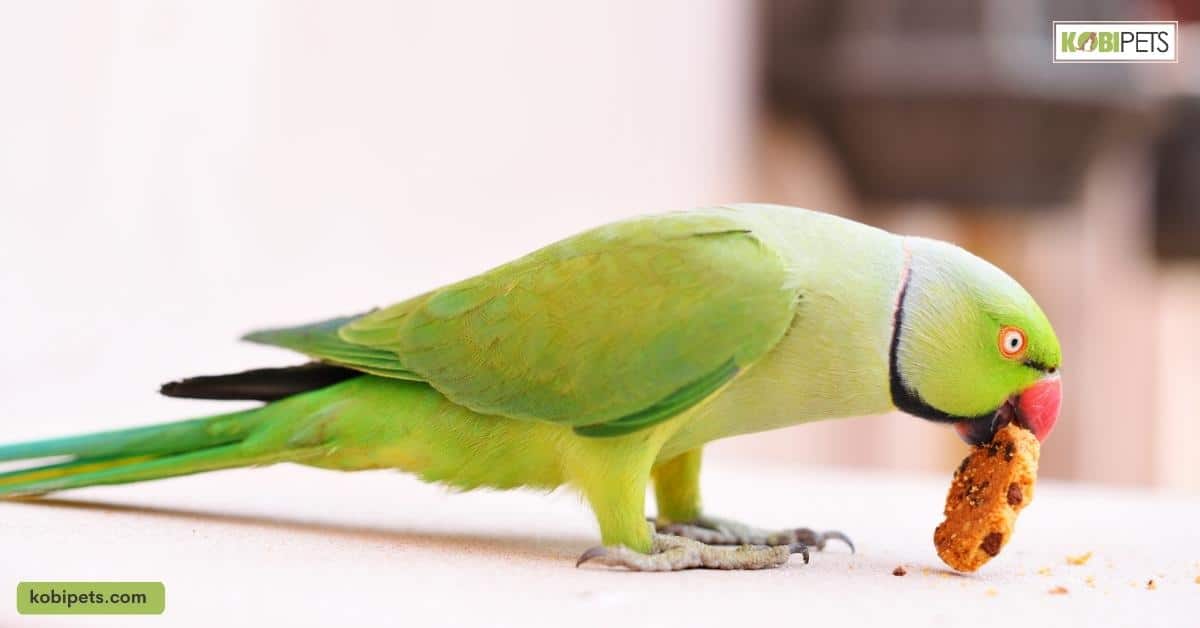
5. Create a Comfortable Living Environment
Creating a comfortable living environment for your pet parrot is key to ensuring its health and happiness. Make sure the cage allows plenty of space for them to move around and exercise their wings. Include perches at different heights, toys, and food dishes that are easy for them to access.
You should also “bird-proof” your home by removing any potential hazards such as drapery cords or small objects that could be a choking hazard. Set up a quiet area away from excessive noise and bright lights so they can rest peacefully. Lastly, maintain steady temperatures at all times so they stay comfortable in their environment.
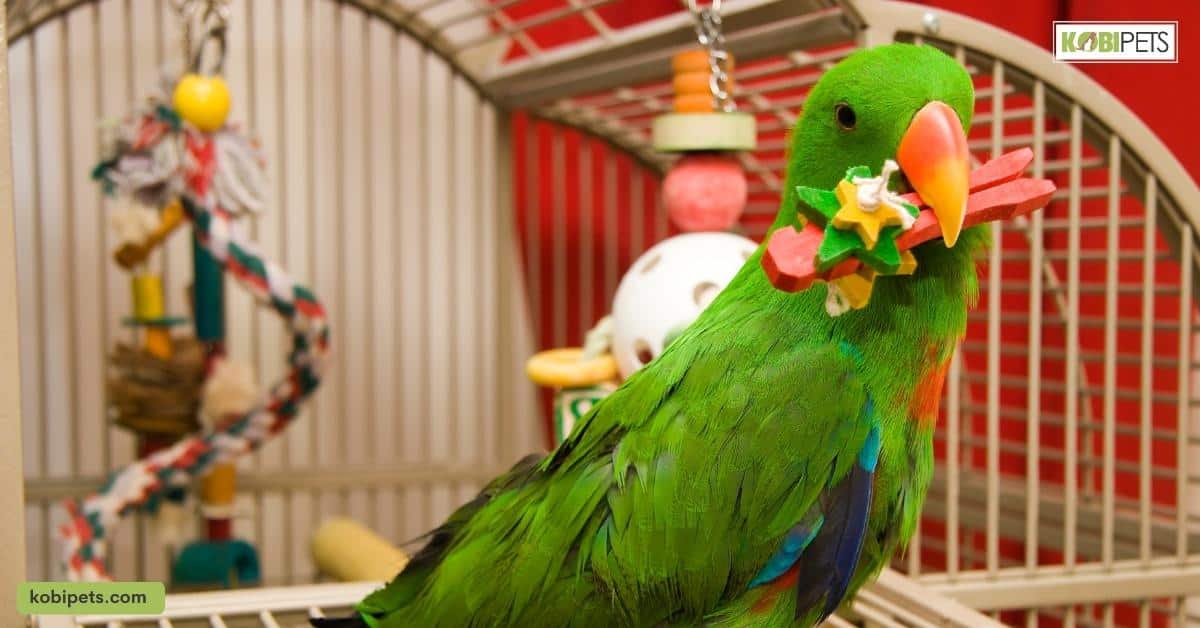
6. Socialize with You and Other Birds
Socializing with your pet parrot is an important part of keeping them happy and active. Parrots are highly social animals and need plenty of interaction to stay healthy and content. Playing with your parrot daily is essential as this allows you to bond, while also providing them with stimulation. You can play games such as hide and seek or teach them tricks like flying back to their perch.
Additionally, it’s a good idea to introduce your parrot to other birds. This will help them to learn how to interact with others and make new friends. Take the time to take your parrot outside for some exercise in an outdoor aviary or garden, where it can interact with other birds without the need for cages or limits on activity.
7. Introduce New Experiences and Activities Regularly
It is important to introduce new experiences and activities for your pet parrot regularly to keep them happy and active. Here are some ideas of how you can provide enriching experiences for your parrot:
- Provide plenty of toys that stimulate curiosity and encourage problem-solving, such as ladders and swings.
- Allow your parrot to explore different environments; take them outside in a safe outdoor space or set up play areas indoors.
- Give them access to bird baths filled with clean water; this will allow them to bathe, drink, splash around, and relax.
- Teach them tricks like flying from their perch or coming when called; rewards such as treats will help with this training.
- Introduce new food into their diets such as cooked vegetables, fruits, nuts, and seeds.
- Provide foraging opportunities for high-quality snacks and treats in the form of puzzle toys. With these activities, you can ensure that your pet parrot is always entertained and engaged in healthy activities!
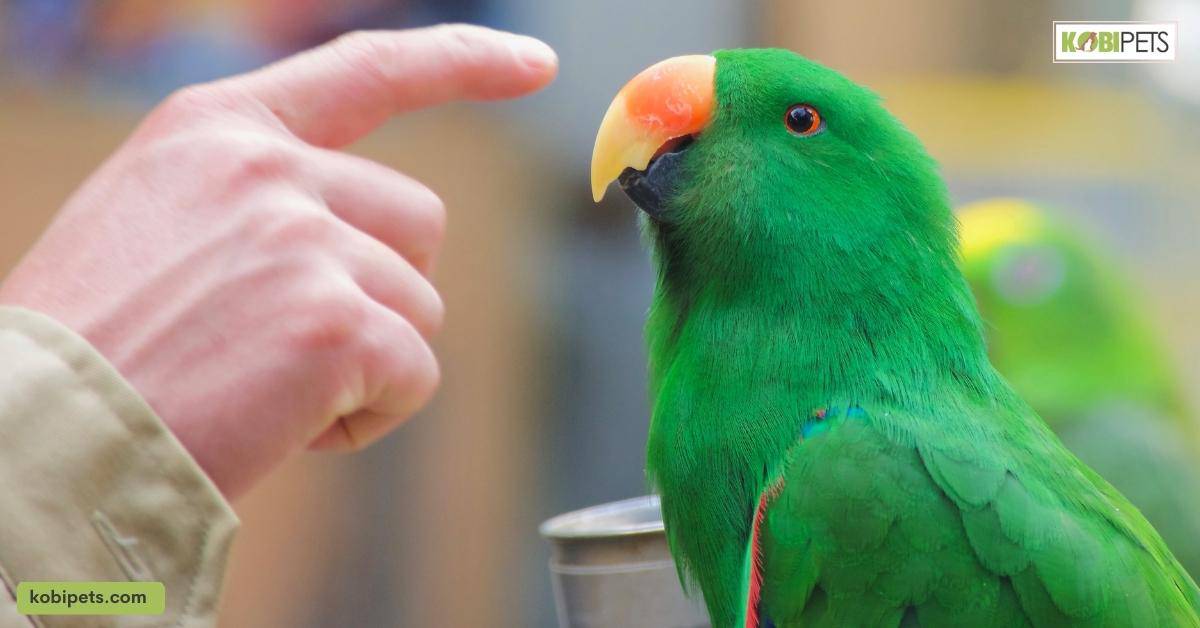
8. Keep Toys and Perches Clean
It is important to regularly clean your pet parrot’s toys and perches to keep them healthy and free from bacteria. This can easily be done with a simple solution of warm water and mild soap. Regular cleaning prevents the build-up of germs which can cause illness, as well as create an unpleasant smell in the bird’s environment.
Additionally, it is important to let the toys and perches air dry before reintroducing them into the environment. All these steps are crucial for maintaining a healthy home for your pet parrot! Furthermore, provide mental stimulation with puzzle toys and games such as hide and seek or tug-of-war.
These activities not only encourage problem-solving skills but also help them stay sharp and focused.
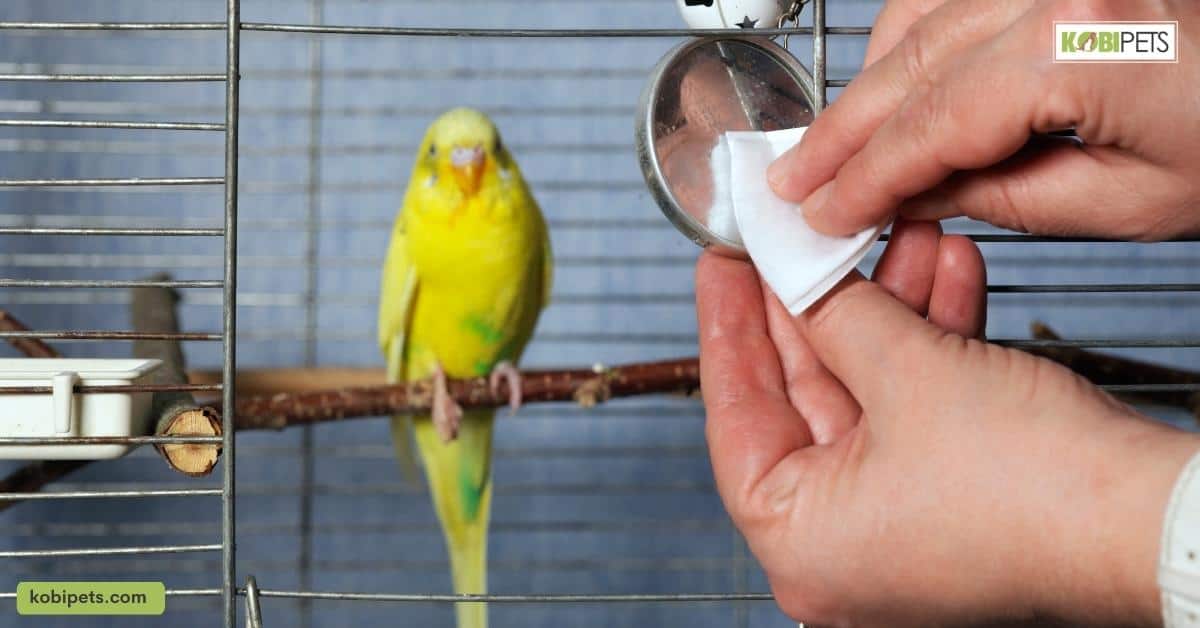
9. Provide Mental Stimulation with Puzzles and Games
Mental stimulation is important for any pet parrot’s well-being. Puzzle toys and games are great ways to do this, including hide-and-seek and tug-of-war. Not only do these activities help enhance problem-solving skills, but they also keep the parrot engaged, focused, and entertained.
Make sure to regularly replace the puzzles or toys with new ones to keep your pet parrot mentally stimulated and active!
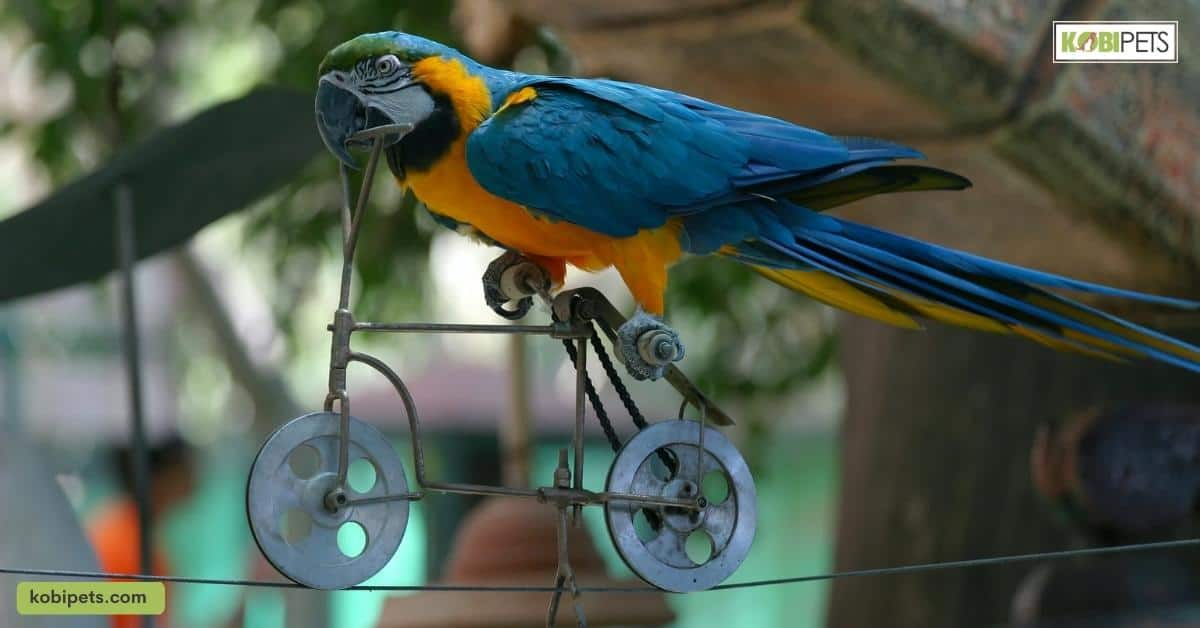
10. Offer Regular Exercise Opportunities
Exercise is essential for a pet parrot’s physical and mental health. Providing regular exercise opportunities will help your parrot stay fit, burn off excess energy, and maintain a healthy weight. Examples of activities include:
- offering climbing or flying toys,
- providing an area with perches to encourage natural behaviors like playing and hopping around
You can also play interactive games with your parrot such as pulling strings, swinging from ladders, or playing catch across the room. Regular exercise will keep your pet parrot in shape and happy!
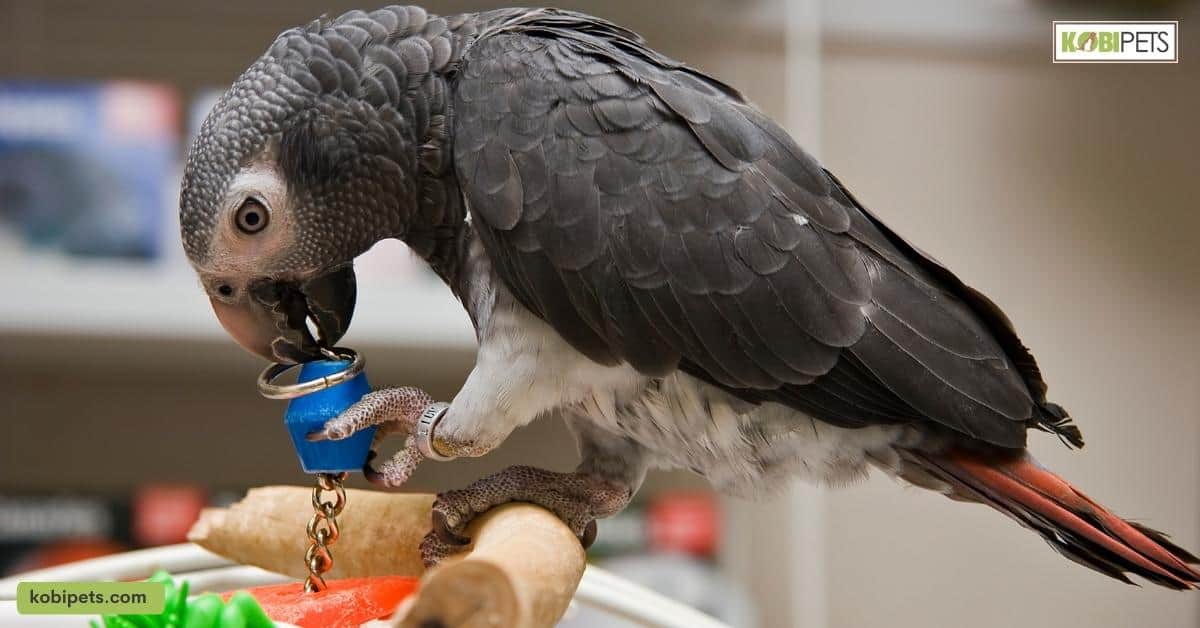
In Conclusion
Providing your pet parrot with enrichment activities is essential for its physical and mental health. Offering a variety of toys and perches, engaging in training sessions, and introducing interactive playtime are all great ways to ensure that your feathered friend stays happy and active.
Additionally, feeding them a balanced diet, creating a comfortable living environment, and socializing with other birds are also important for their overall well-being. With these tips, you can ensure that your pet parrot remains healthy, happy, and active!
